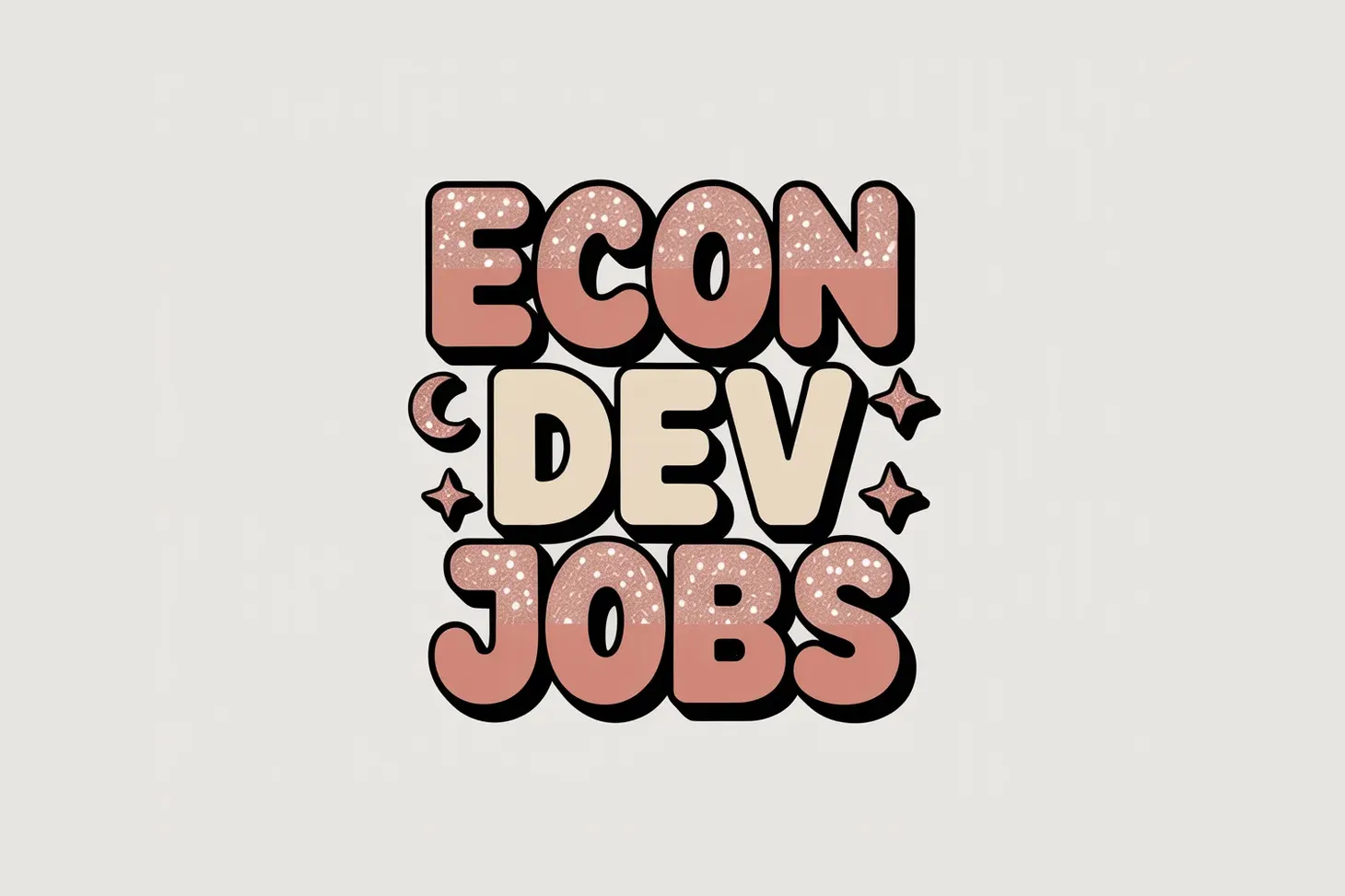The 52 Things Economic Developers Need To Know This Week
The stories that Dane thinks you need to see from this week. April 21, 2022 edition.

Table of Contents
Welcome to the "make you a smarter economic developer" newsletter! Thanks for spending a few minutes with us this morning.
Today we have 52 stories, graphics, charts, and videos that I think you'll find informative, useful, inspiring, and perhaps even humorous.
As always, if you find something great, please send it to me.
- Dane

1) Tokyo's Manuscript Writing Cafe only allows writers on a deadline, and won't let them leave until finished:
A cafe located in the Koenji district of Tokyo that's been causing a buzz online has a different way of keep you busy. It's called the The Manuscript Writing Cafe, and is designed to operate as a safe haven and base for writers who need to get in their work up against a deadline. But it's not just a theme of the cafe--those are the actual rules!
2) Texas is the future - California can't compete with a new American Dream:
Some observers lament the fact that the vast majority of Texas’s metropolitan growth — nearly 100% — has taken place in the suburbs and exurbs. But this has its benefits, not least the fact that its cities haven’t been turned into rabbit warrens that only provide high living standards to the rich. Over the past decade, Texas has built three times as much housing as California. This has allowed its cities, despite massive demographic and economic growth, to keep housing prices significantly lower than in coastal Californian cities such as San Francisco, San Jose, San Diego and Los Angeles.
3) Census data show an exodus from big cities in 2020-21; pandemic, living cost, remote work, politics all played roles:
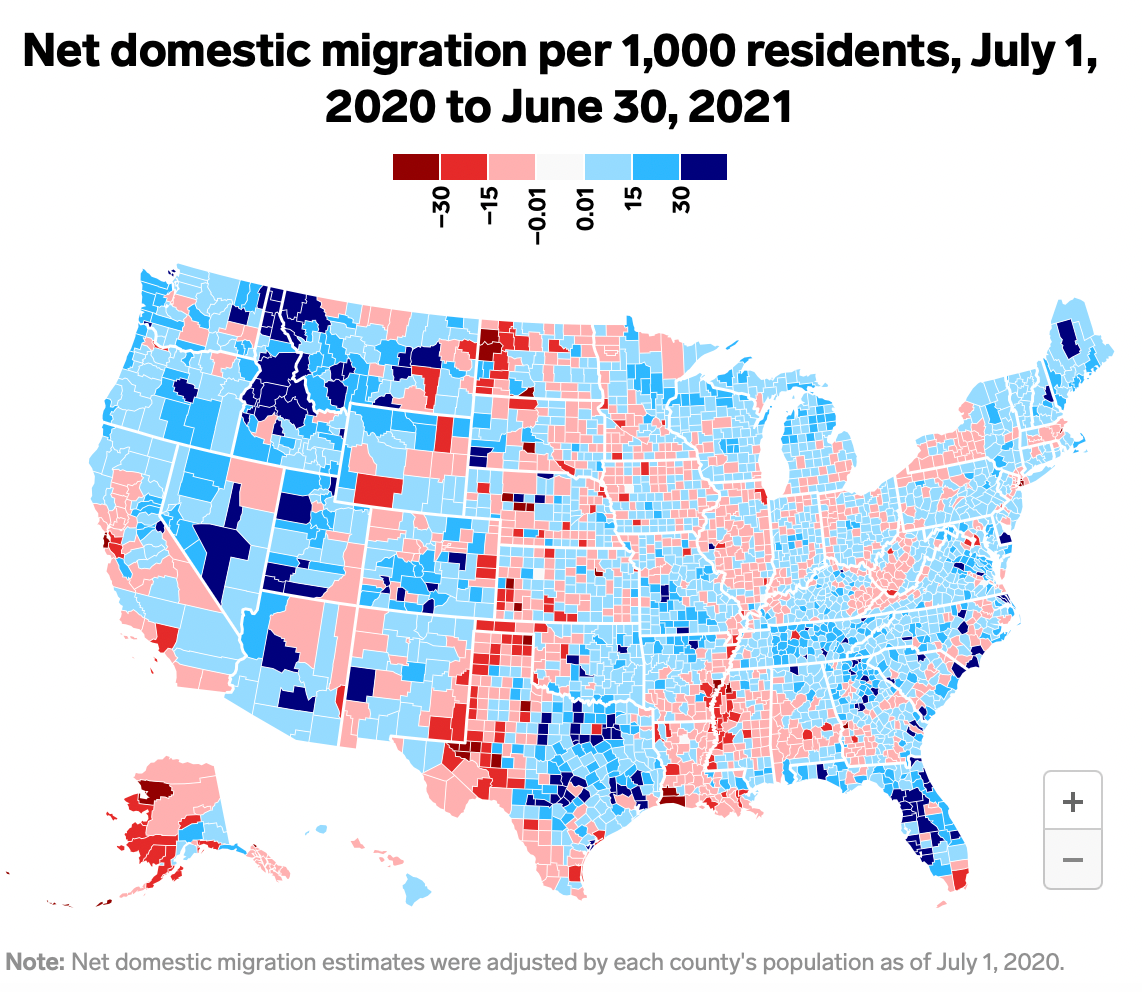
4) The donut effect: How the pandemic hollowed out America’s biggest cities:
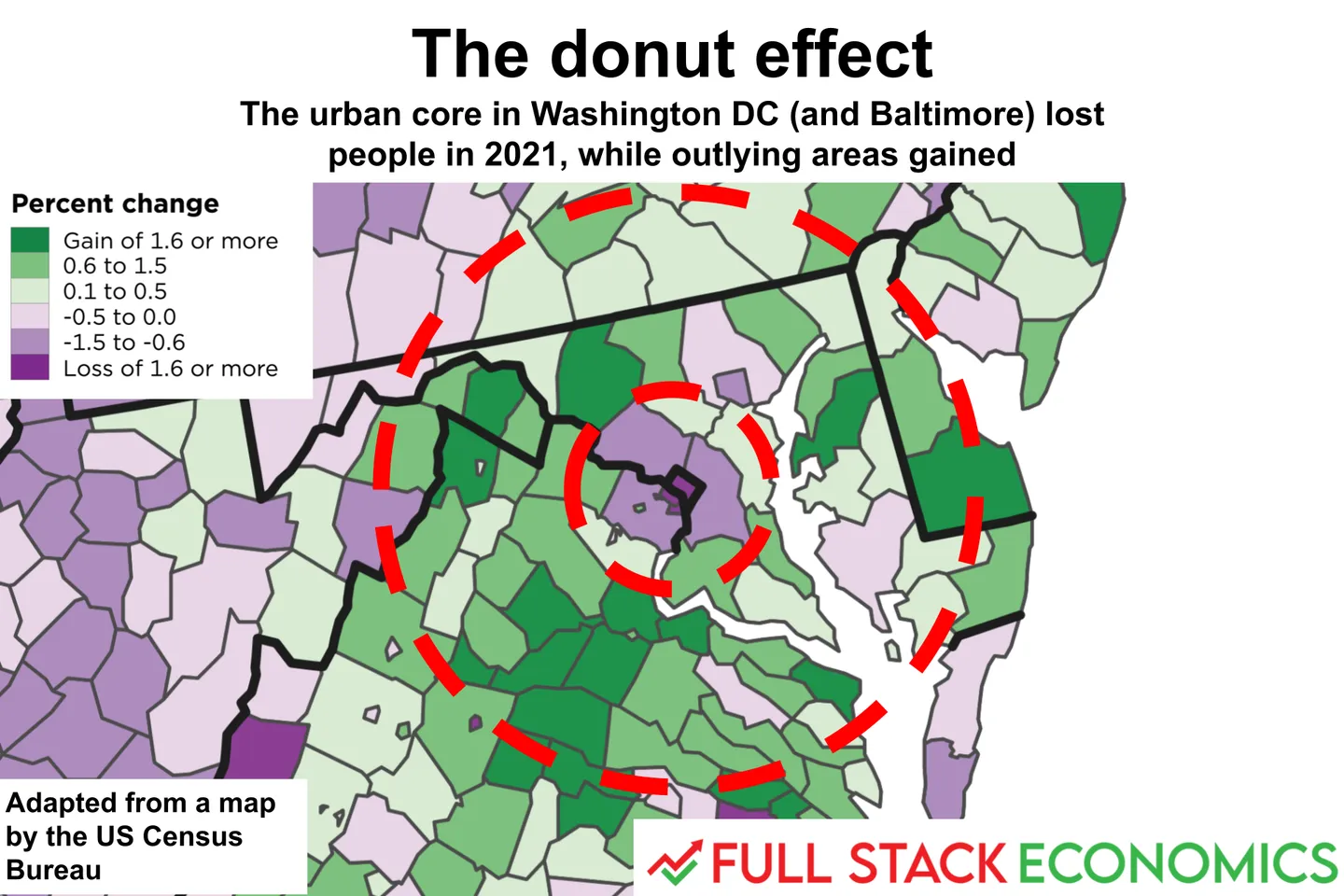
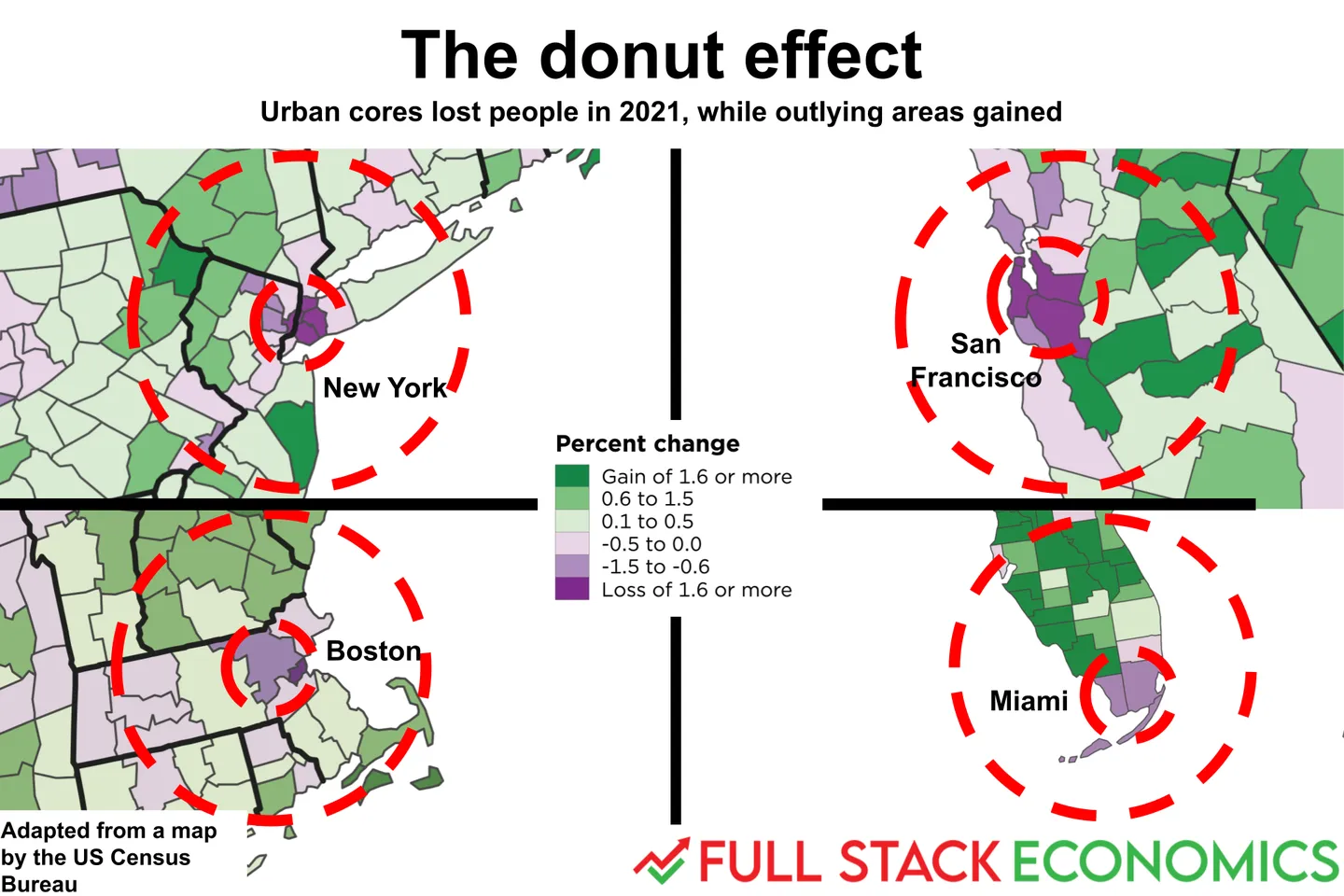
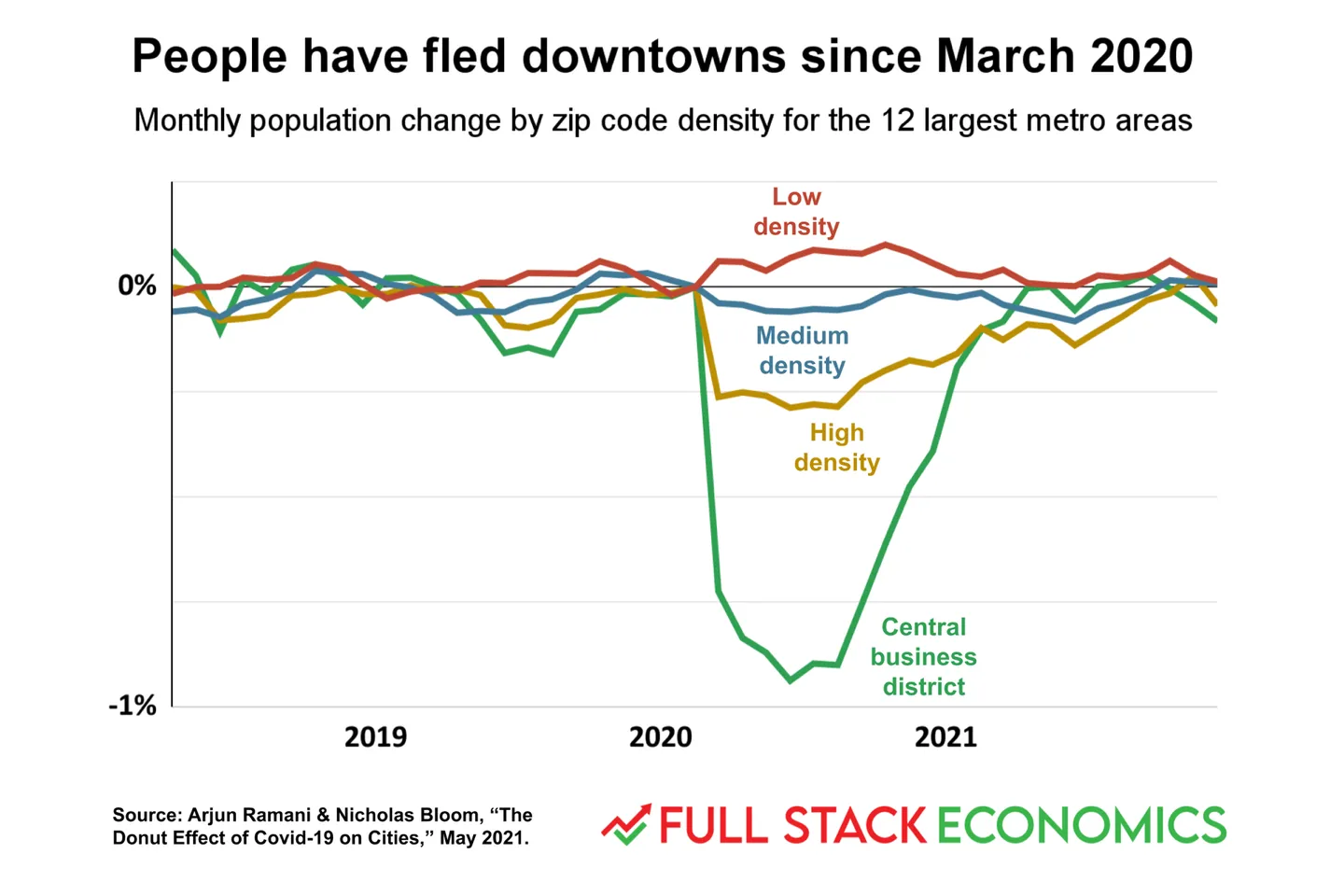
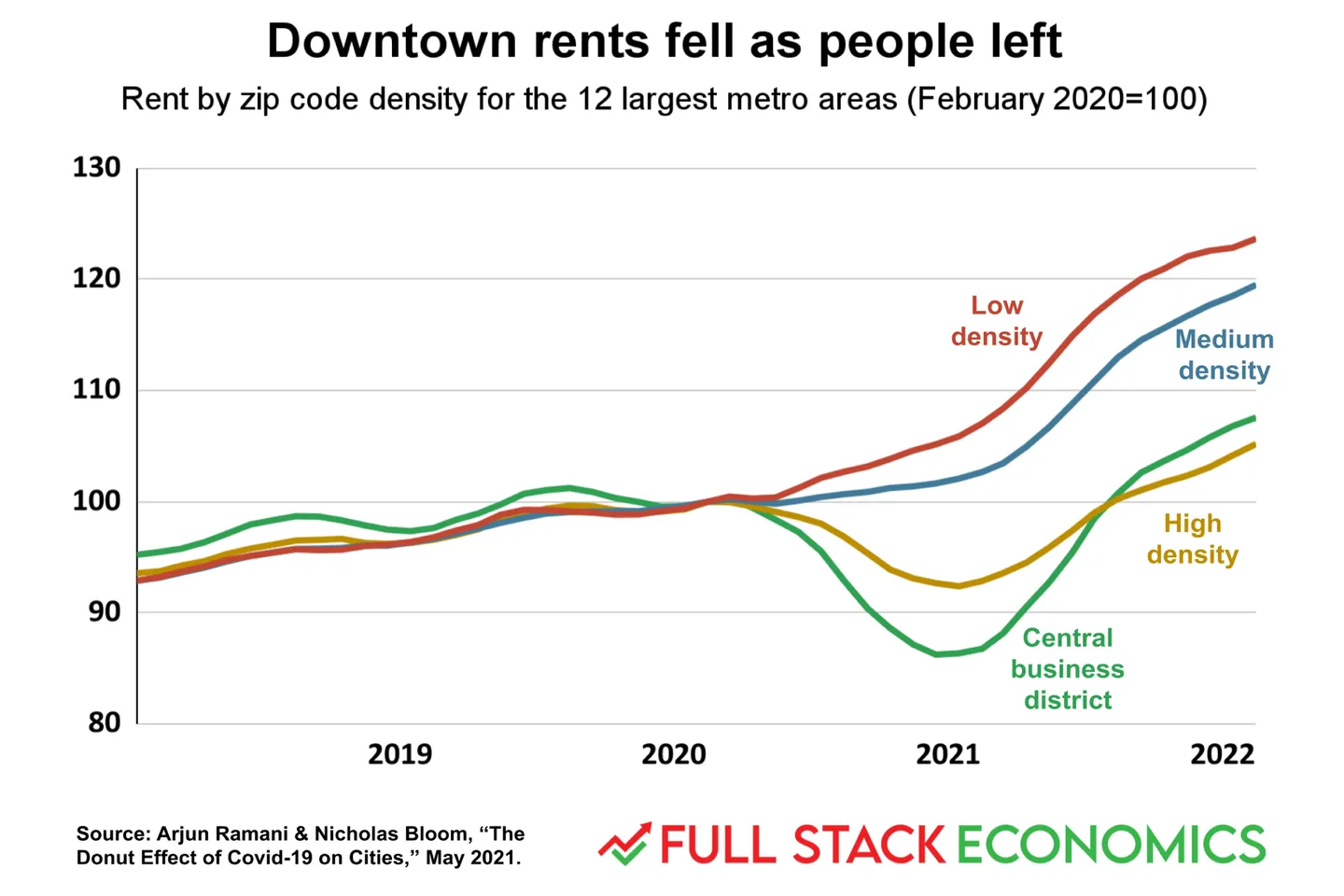
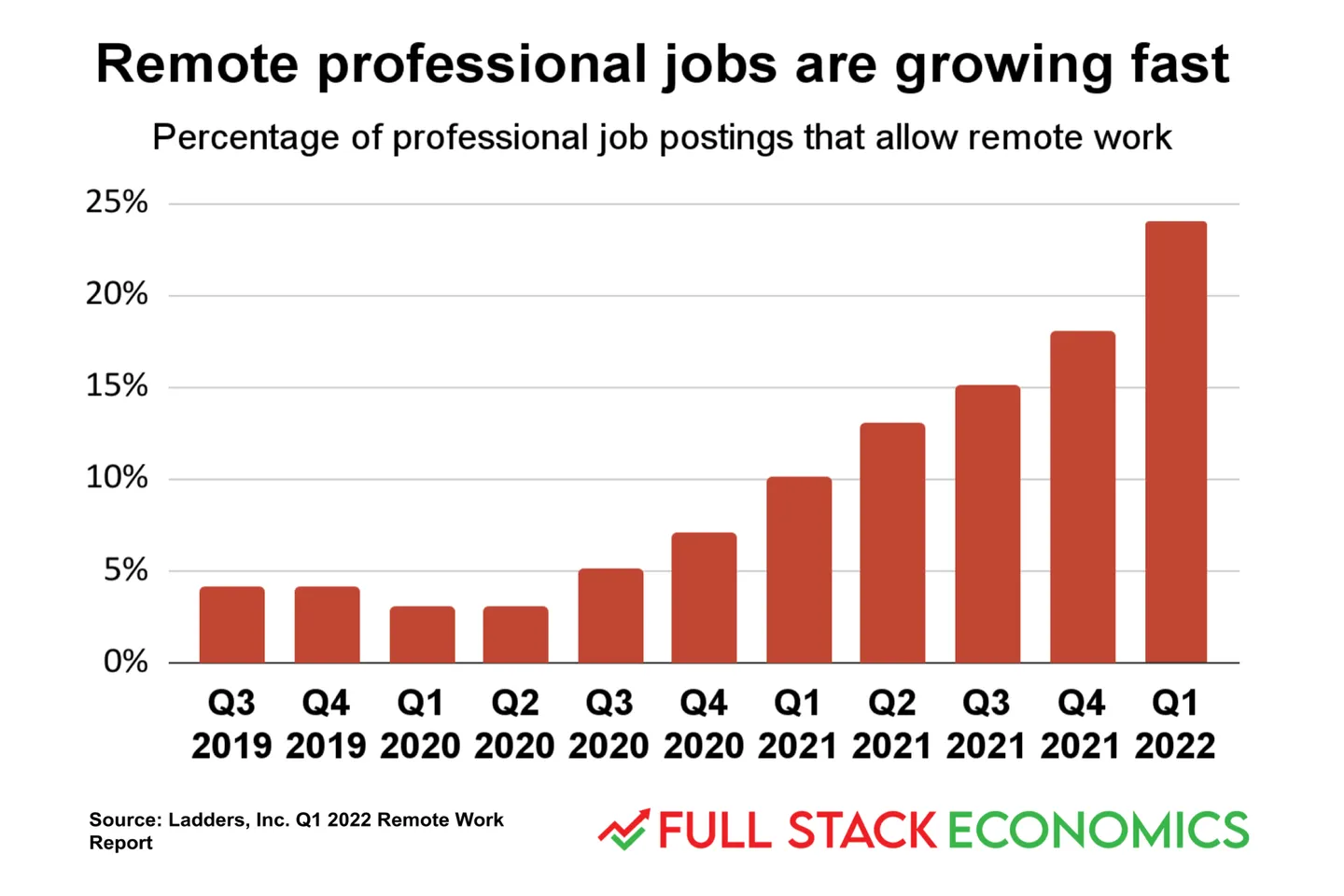
5) Even in a hot economy, wages aren’t keeping up with inflation: Tight labor markets aren’t as good for workers as D.C. economists imagine. High demand raises prices, too.
6) The Memphis region’s innovative approach to economic development metrics: Center for Economic Competitiveness. Here's more.
7) Netflix’s most popular shows:
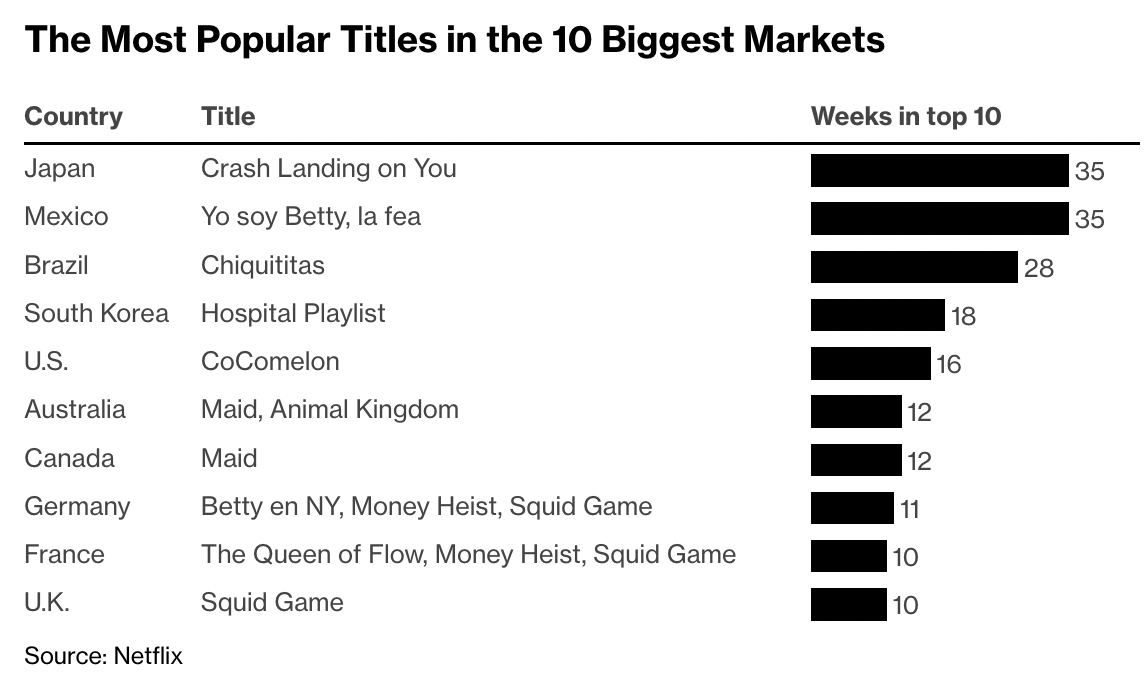
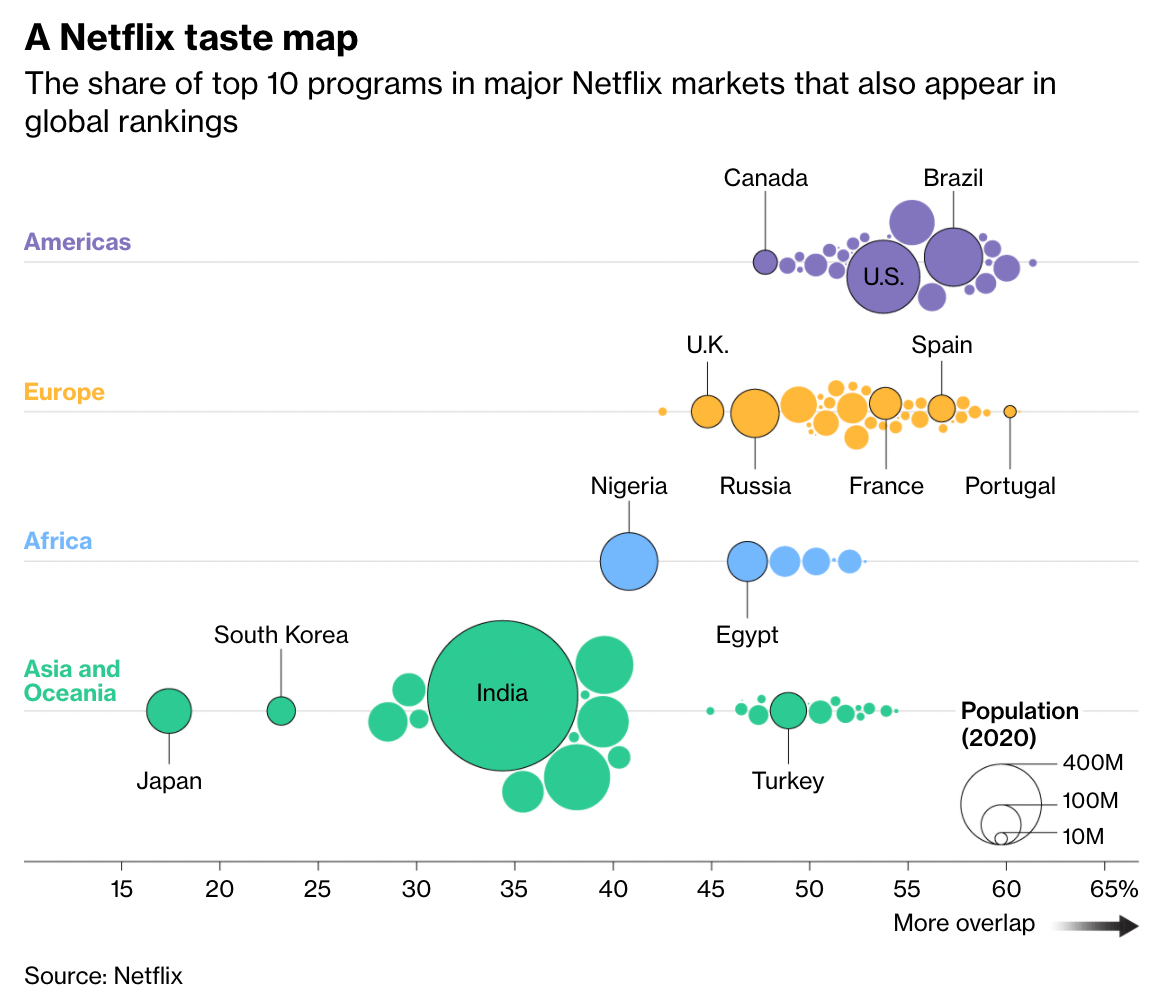
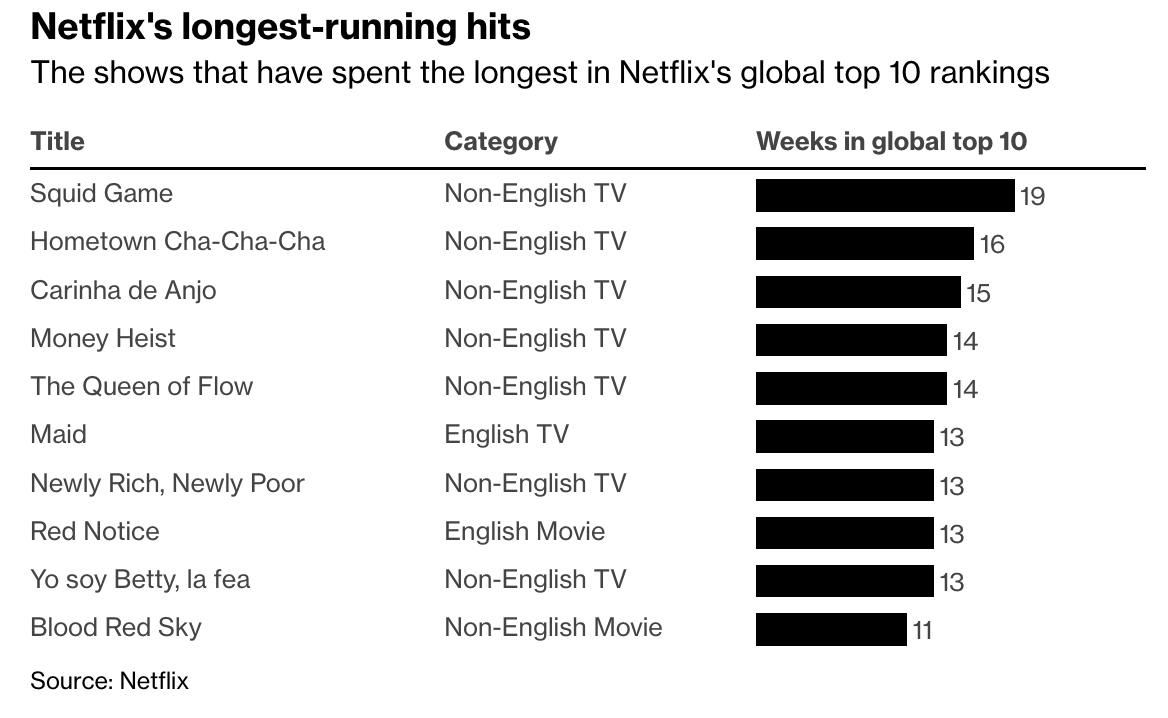
8) Welcome back to the office. Isn’t this fun? Tech companies really want their employees to be happy — or at least less annoyed — about returning. So they’re providing concerts, food trucks and other perks.
9) The death of the gas station: As EVs hit the road, gas stations will have to adapt or risk going out of business.
10) How Japan built cities where you could send your toddler on an errand: The Netflix show "Old Enough!" offers a glimpse of an alternate reality.
11) This cheeseburger explains your bigger grocery bill: American consumers are seeing food prices rise at the fastest rate in decades. Supply chain snarls, labor shortages and climate challenges (plus the conflict in Ukraine) share the blame.
12) The rise of the triple-peak work day:
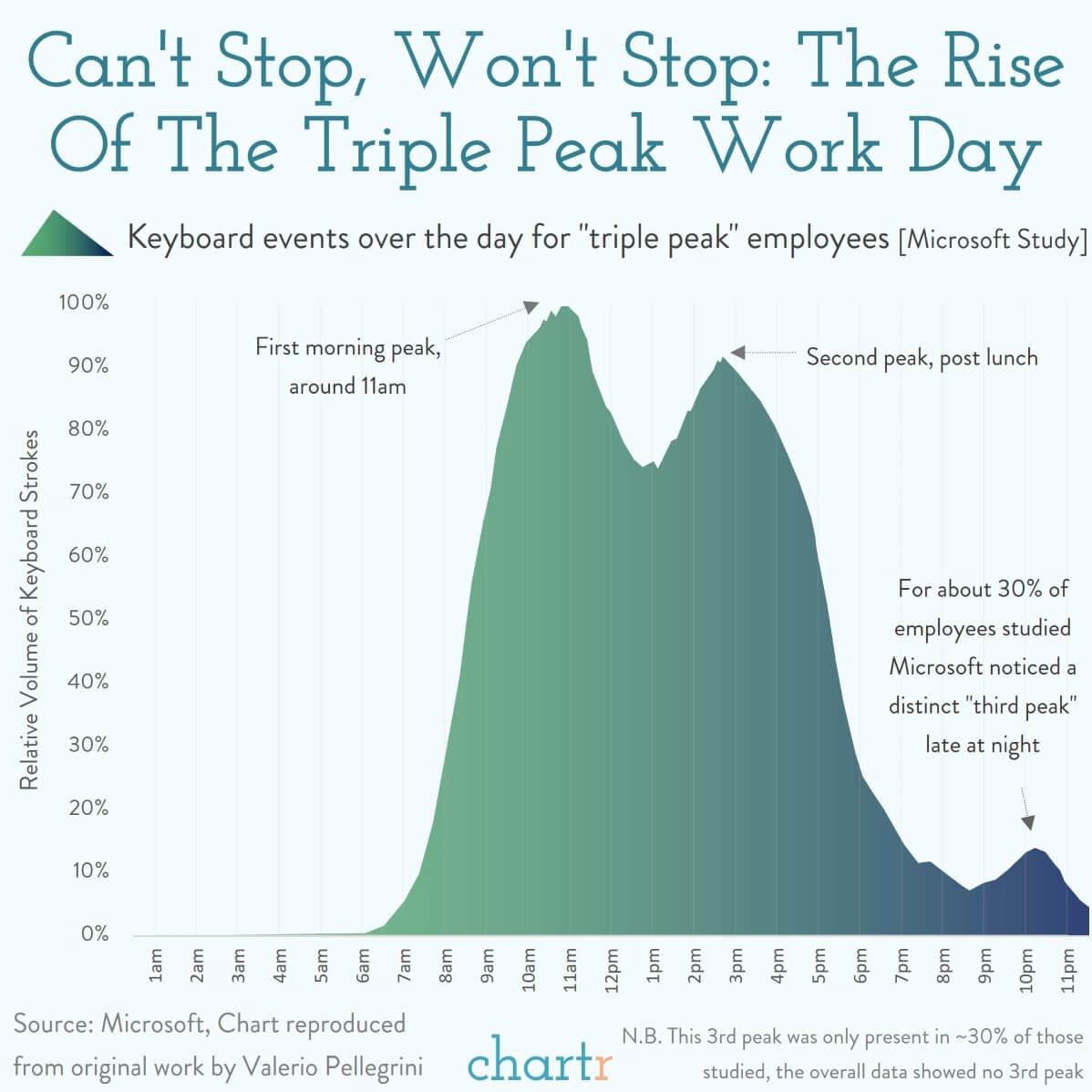
Personally, I have a quadruple-peak workday with another at about 6 AM. What about you?
13) Part II - The evolution of indoor climate.
14) Why are too many of the young men and women who live in a certain democratic capitalist country with a reputation for inexorable, can-do optimism?
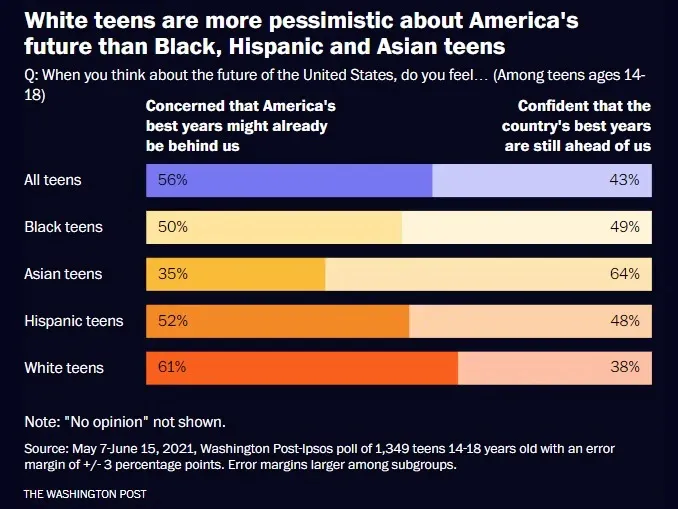
15) Especially relevant for economic development attraction:
What can a marketing book from 2002 teach you about Youtube?
— Jay Alto (@theJayAlto) March 14, 2022
A lot.
While its fundamentals are applied to business...
It’s incredibly relevant to Youtube
And a lot of the top creators are using it... (thread) pic.twitter.com/PI1sbgfn3n
Here's the book.
16) The case for doubling US R&D spending: “We massively underinvest in science and innovation, with implications for our standards of living, health, national competitiveness, and capacity to respond to crisis.”
17) Some economics of supply chains: Here’s an example of a global supply chain, which is all the more powerful for its ordinariness. It’s taken from the most recent Economic Report of the President, produced each year by the White House Council of Economic Advisers.
18) Job openings posted on Indeed appear to have peaked:
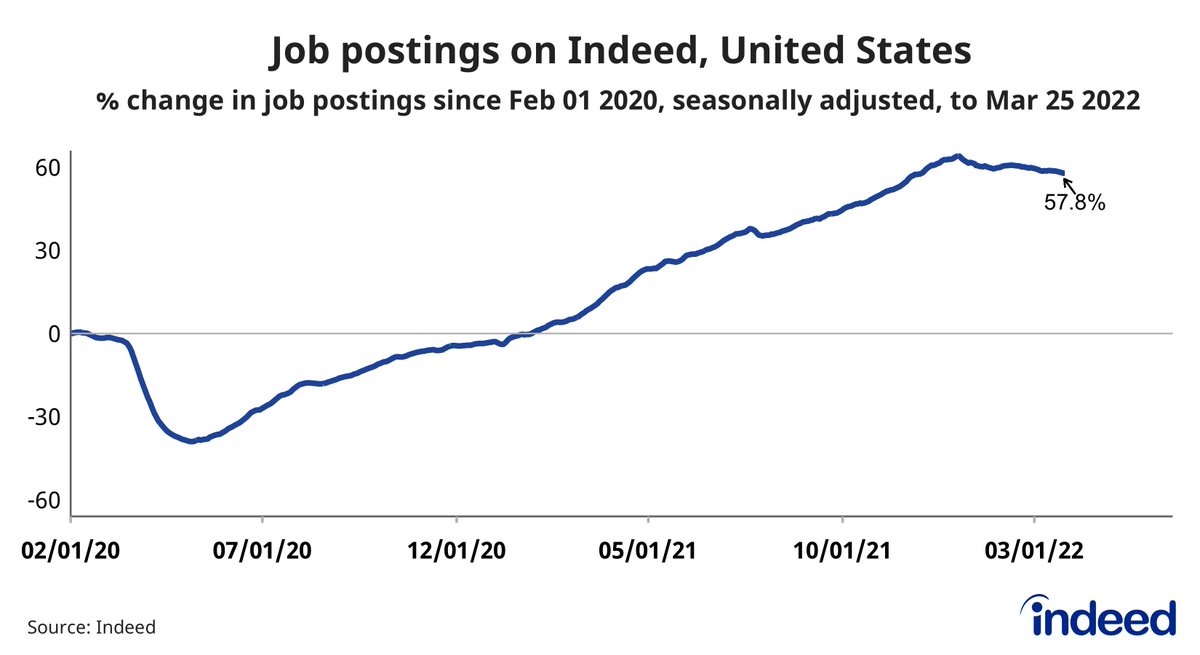
19) Household cash exceeds debt for the first time in 30 years:
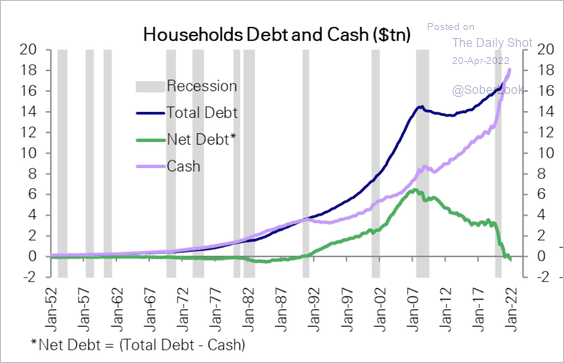
20) Housing starts have diverged from completions amid construction delays:
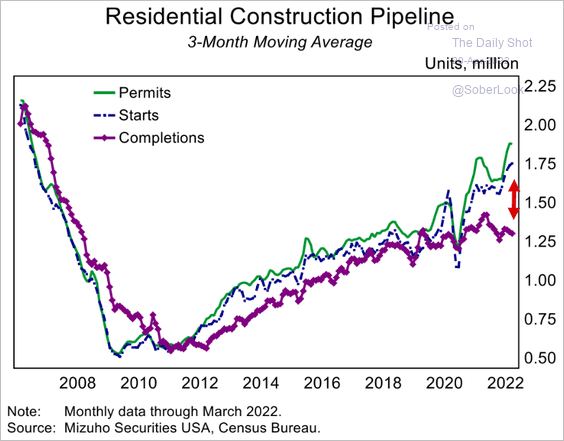
21) The COVID-19 new business boom:
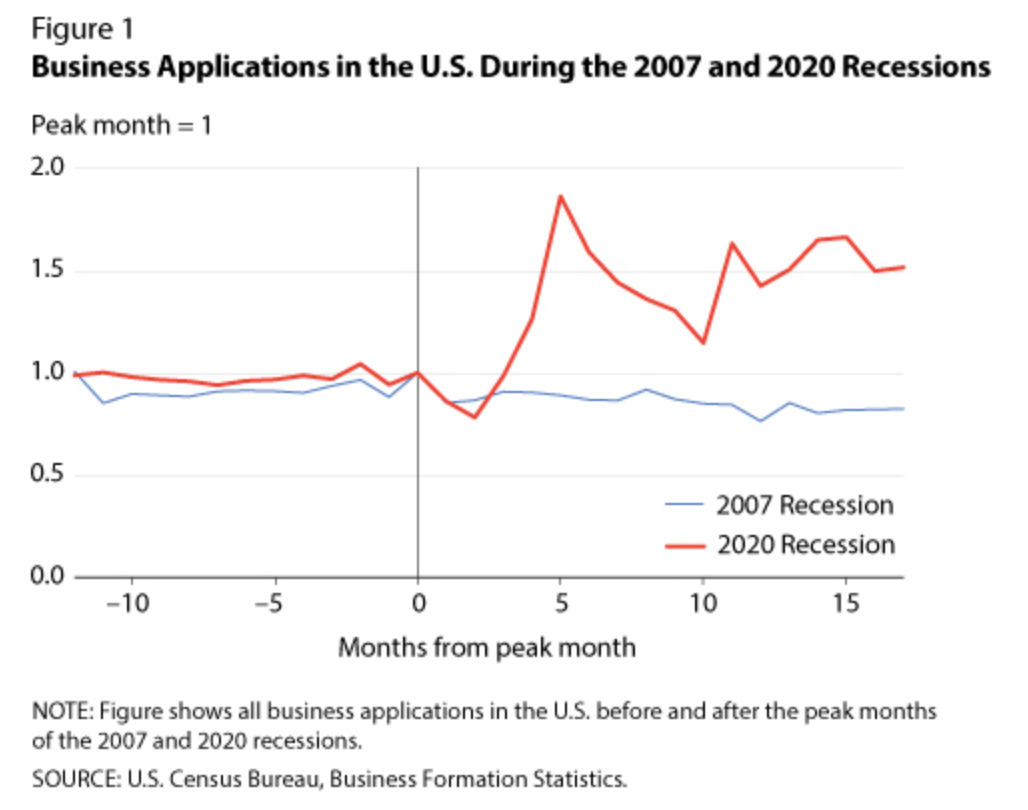
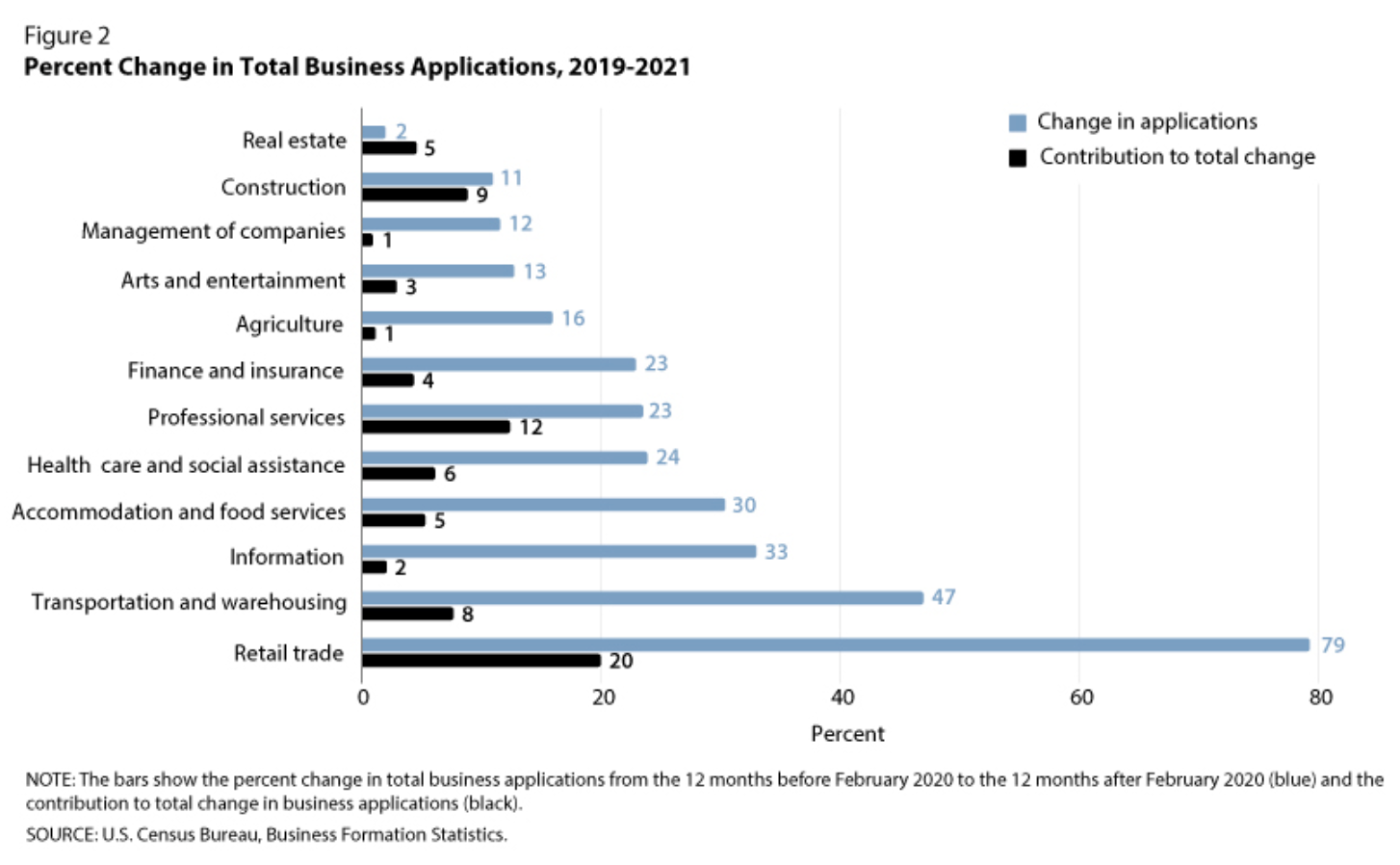
22) Coins, toys and trading cards: What Americans collect.
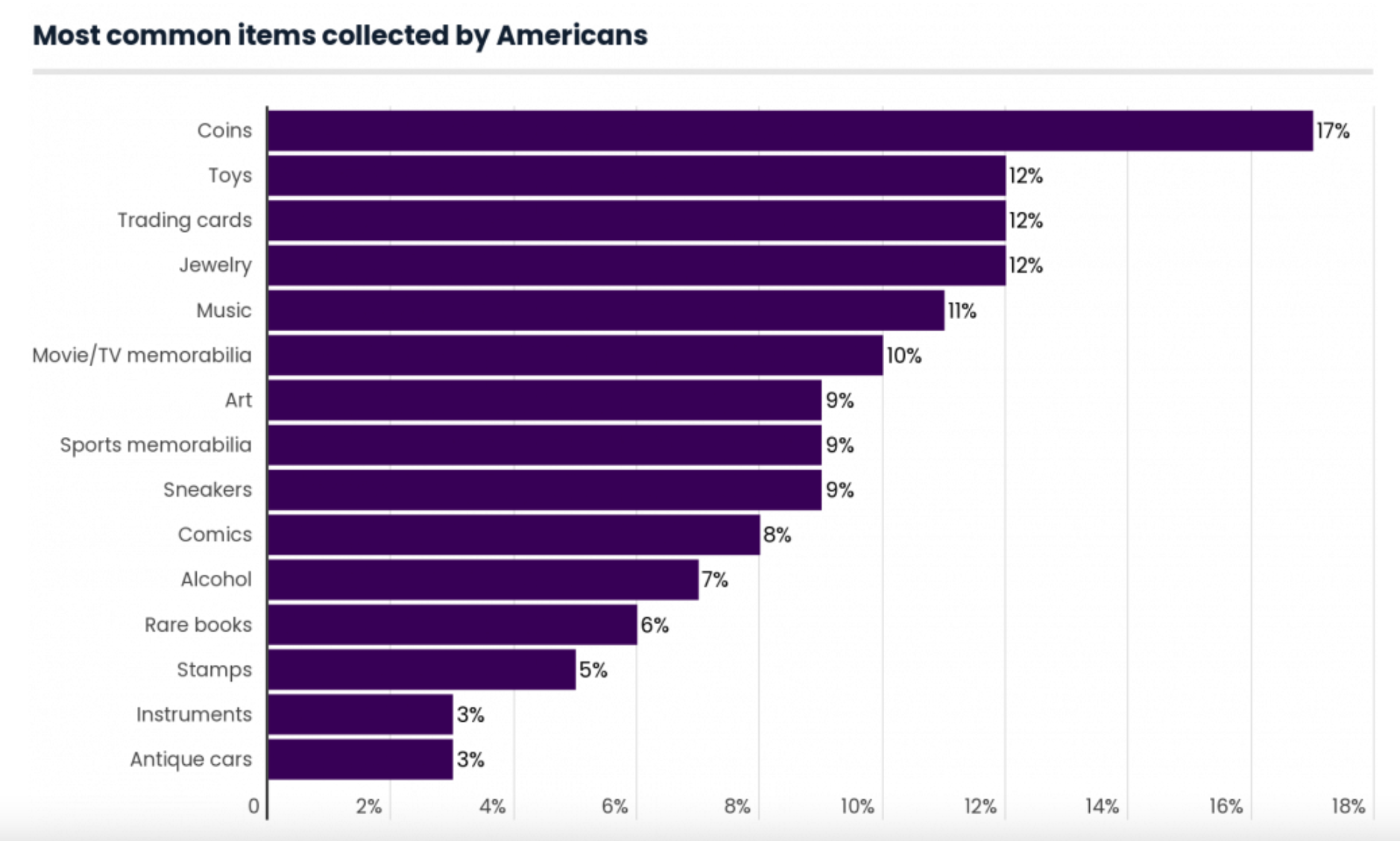
23) March manufacturing output topped forecasts:
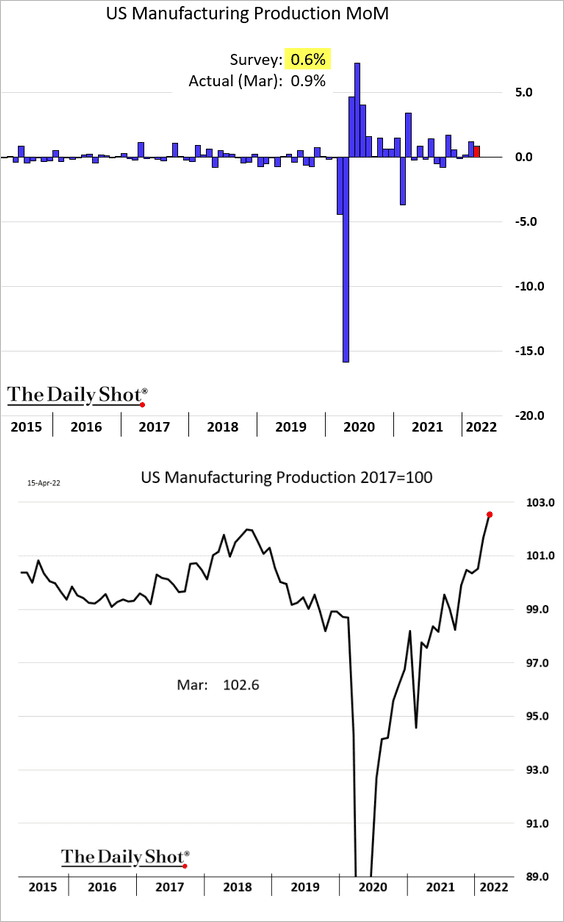
24) Factory capacity utilization hit the highest level since 2007:
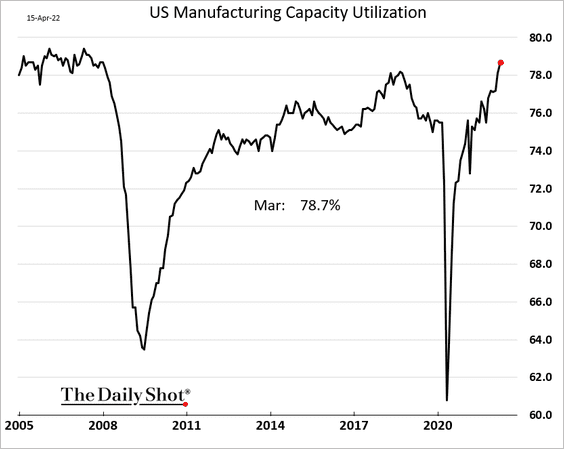
25) Legal immigration to the US partially rebounds as national and global borders reopen:
The number of immigrants receiving green cards as new lawful U.S. permanent residents bounced back last year to pre-pandemic levels after plunging during the coronavirus outbreak
26) Wait, what if people did just stay home in their pajamas? New neighborhood businesses far from Midtown are thriving. Maybe it’s time to redefine what “comeback” means.
27) Wisdom is knowing when you know nothing:
Wisdom is not knowing everything. Wisdom is knowing you know nothing.
— Sahil Bloom (@SahilBloom) April 14, 2022
28) Trucking boom is hitting the brakes as freight demand slows: Rates are sliding and shipping demand and capacity appear to be coming into balance following a period of strong earnings for trucking companies.
29) U.S. companies load up on costly inventories as new supply snarls loom in China: These disruptions are sending a new ripple through global supply chains for goods ranging from electric cars to iPhones.
30) Success depends on not caring about about the outcome:
Your success in life depends on your ability to make good decisions. Your happiness depends on your ability to not care about the outcomes.
— Naval (@naval) April 18, 2022
31) Retirement the Margaritaville Way: At the active-living community for Jimmy Buffett enthusiasts, it’s five o’clock everywhere.
32) A day in the life of (almost) every vending machine in the world: What’s behind the indestructible appeal of the robotic snack?
33) Why the past 10 years of American life have been uniquely stupid: How the story of Tower Babel explains America.
Warehouses are now more valuable than suburban offices:
Before 2020, warehouse space in the Philadelphia area was a few dollars a square foot, compared to over $30 for the top office properties and $10 to $20 for older office buildings. Offices typically cost more to build and renovate, and landlords expected higher rents. But now, as office demand sags, warehouses in many cases have topped $10 a square foot and are considered a surer bet for future income by a growing number of landlords.
34) 50 cognitive biases:

35) Schools these day...
Apparently my kid got in trouble today for PACKING OUR TOASTER IN HIS BACKPACK and pulling it out at lunch to make pop tarts for his class. I can’t stop laughing.
— Elisa Stone Leahy (@ElisaStoneLeahy) April 13, 2022
36) The home price/rent ratio, a measure of housing valuation, is at the highest level since 2006.
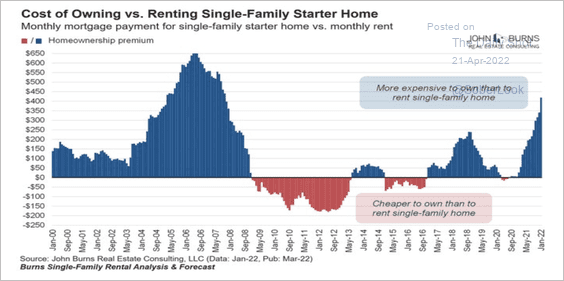
37) Hot economy, rising inflation: The Fed has never successfully fixed a problem like this.
38) Home price gains are diverging across US regions.
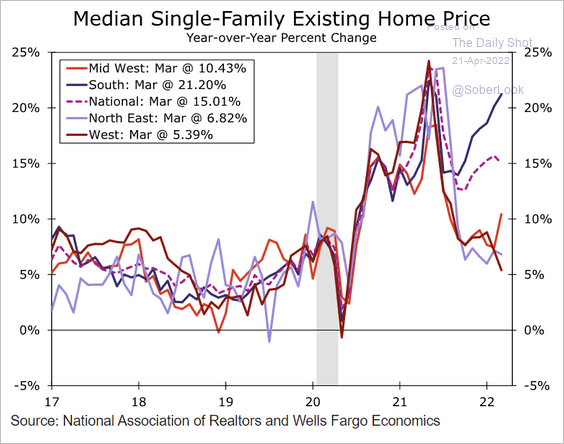
39) Why baseball is still good for America:
The data of the American National Family Life Survey illustrate that there is a very strong relationship between engaging in local culture and the fostering of meaningful, home-grown sociability. Local events, and sports more specifically, can make connecting with others easier. They can help Americans to feel that they are part of something bigger than themselves, and they help establish a sense of place. As loneliness rises, social capital declines, and neighbors talk less, baseball and local sports can be a force that helps bring Americans together in an era of fracture, isolation, and dislocation.
40) Your next online order might be airborne:
Commercial deliveries via drone topped 600,000 globally in the past three years. Experts predict there will be as many as 1.5 million drone deliveries in 2022, distributing everything from pizzas to medical supplies.
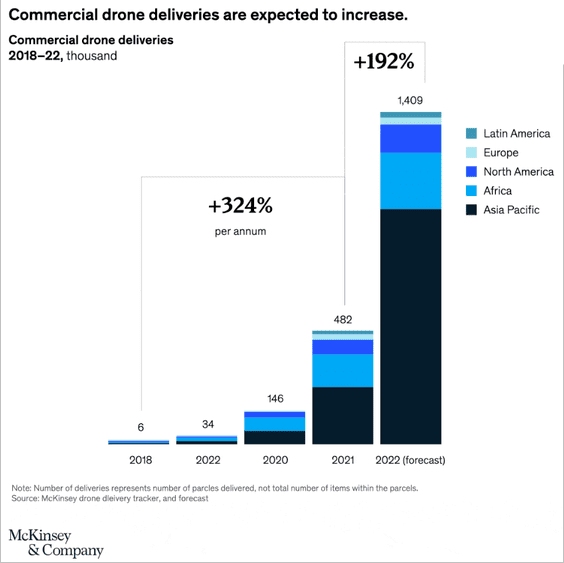
41) Burned out or engaged at work?
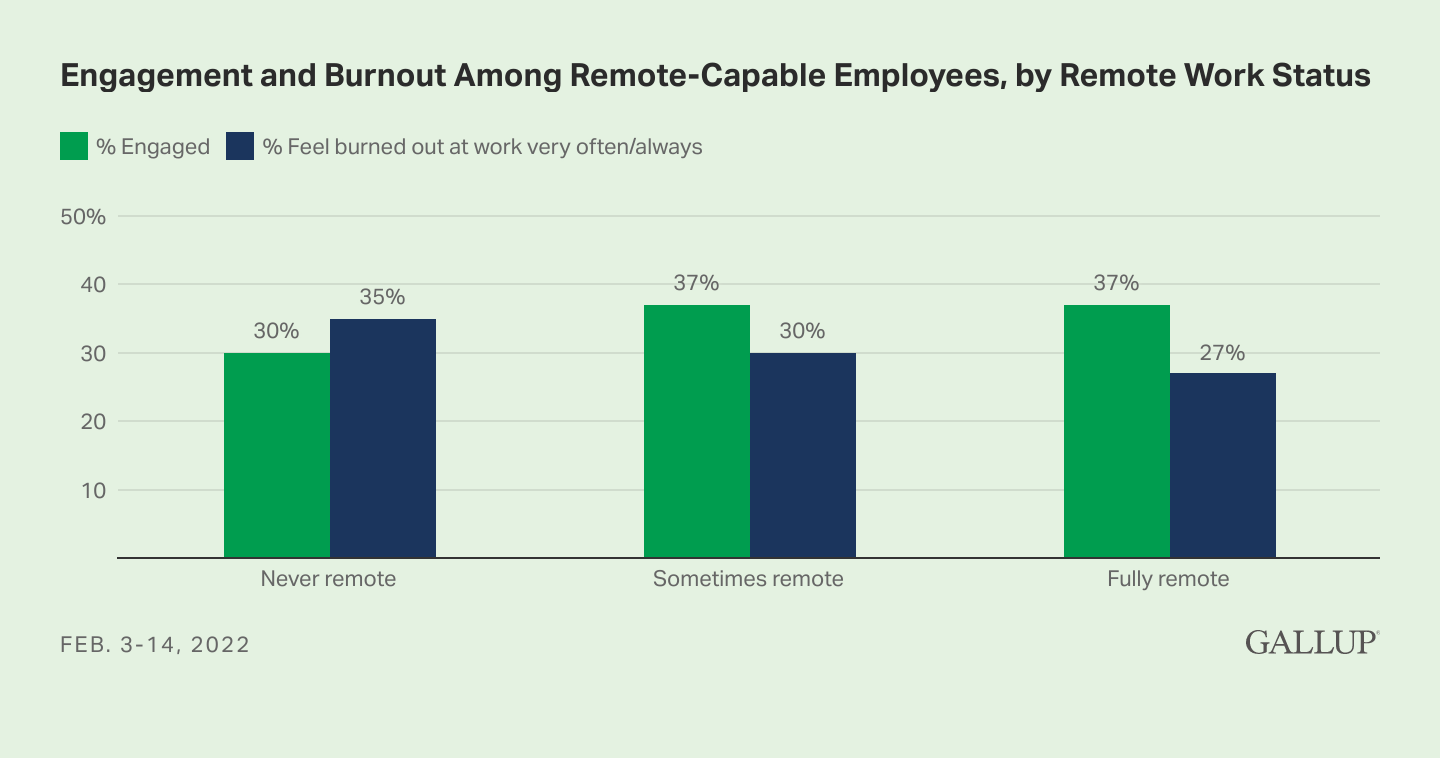
42) TikTok? In-depth analysis: These creators have theories for everything on the internet, from celebrities to fashion trends.
43) Will the bullwhip do the Fed’s job on inflation? The bullwhip effect is something every supply chain 101 student learns about – the idea that upstream providers overproduce in reaction to a one-time demand shock.
44) The states that Americans sing about most:
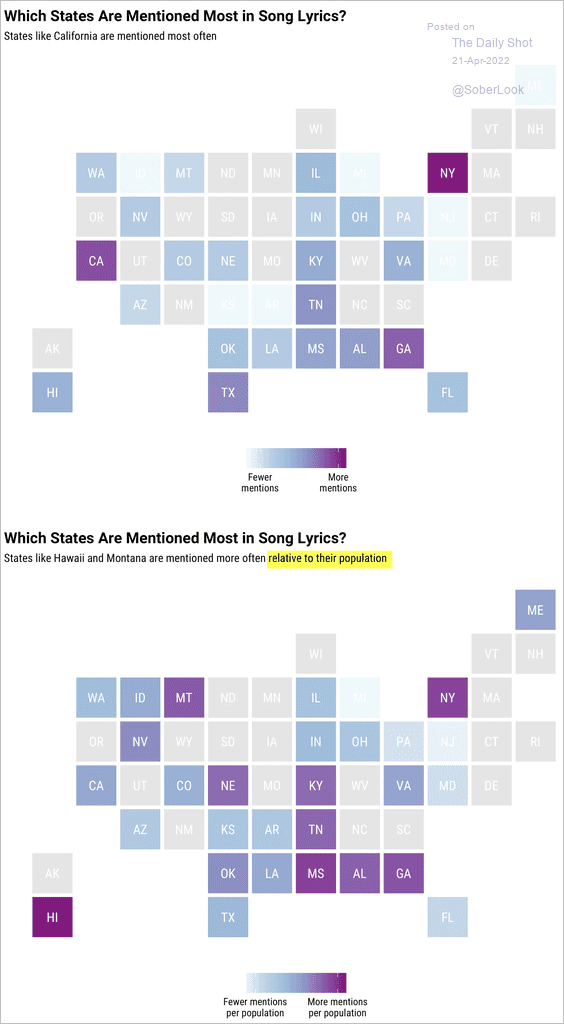
45) Elon Musk: "A future worth getting excited about"
The idea behind Fan Controlled Football lives with every fan who has ever yelled at a TV screen, thrown a remote control across the room or cheered wildly when their favorite team finally did the thing they wanted them to do. This isn't brain surgery and we're not solving world peace, but for those of us who are truly fans hopefully the FCF is a whole lot of fun... and we could all use some of that these days!
47) Scientists publish breakthrough study in Oreo-splitting research: A new study introduces "Oreology," the study of the flow and fracture of sandwich cookies, to investigate if Oreo filling can be evenly split between wafers.
48) Podcast Episode 46 - Using Plain Language in Economic Development with Melissa Meschke: Do you find it difficult to explain your job to your family, friends and even your professional contacts? Use plain language!
49) 7 Tactics to Be a World-Class Negotiator: Anything you want in life is only a negotiation away.
50) Issue # 56 - Economic Development and Developers in the News: Econ dev news from 187 economic development executives and organizations in 41 states, and Canada.
51) 49 New Economic Development Jobs Last Week: Econ dev jobs in 29 states, and Canada: Communication, community, main street, marketing, planning, research, small business, talent, and more.
52) The 72 Things Economic Developers Need To Know Last Week: The stories that Dane thinks you need to see from last week. April 14, 2022 edition.

Econ Dev Show Peer Mentoring
Help other econ devs, and be helped, as both teacher and student.
Econ Dev Show Newsletter
Join the newsletter to receive the latest updates in your inbox.


